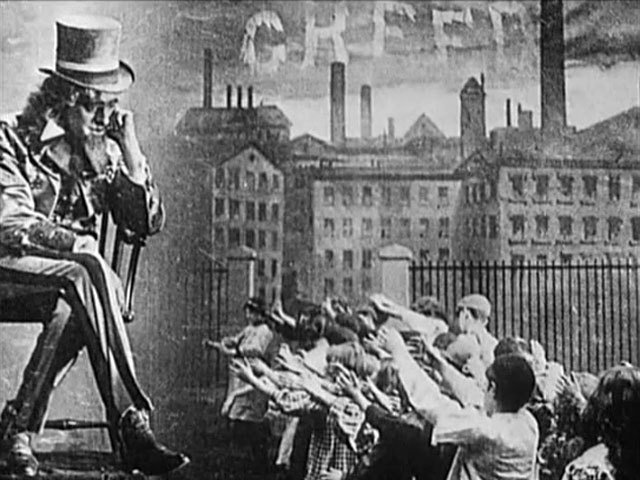Corporations Will Never Police Themselves

I have long stated that the only to police supply chains to ensure basic human rights is to have a legal path to doing so, suggesting some options in my idea for a Corporate Accountability Act.
In the 1990s, more U.S. companies began manufacturing abroad, where labor was cheaper. But soon, they had a problem. Journalists, consumers and human rights groups noticed that, away from the eyes of American unions and regulators, these multinationals sometimes used brutal cost-saving measures, such as sweat shops and child labor.
Executives — in garments, mining and agriculture, for instance — found a solution. Companies would hire outside inspectors to scrutinize their supply chains. These inspectors would visit their suppliers’ factories, investigate abuses and determine whether everyone was following the rules. Major companies signed on, sending a message that they could clean up their own supply chains. There was no need, they argued, for governments to intervene.
But my reporting over the last year has shown how flawed these audits can be. I visited sugar mills in India, the world’s second-largest producer, that supply multinational companies. Their sugar sweetens cans of Coke and cups of tea. In the state of Maharashtra, I met dozens of women who were pushed to have hysterectomies, often as a consequence of routine gynecological problems made worse by an absence of bathrooms, menstrual products and running water in the fields. Sometimes they borrowed money for the surgery from their employers, who forced them and their families to pay it back through more work.
Many farm laborers also said the contractors who hired them had saddled them with enormous debt — for salary advances, health care and other costs — that would prevent them from ever leaving their jobs. Women described working in the fields as children. Our photographer, Saumya Khandelwal, saw kids cutting cane. The Times published my investigation into these farms this morning.
Most major companies have policies that ban labor and environmental abuses. To enforce them, they rely on a process known as social auditing. Factories pay social auditors to visit for a few days, during which they look at corporate paperwork and interview workers and managers. These observers look for anything that might be amiss: unsanitary work stations, underpaid or underage employees, illegal chemicals, unsafe conditions.
The problem is that auditors only capture a small period of time, and factories usually know they are coming. So managers have a chance to temporarily clean things up — and to stage-manage the interviews. Sugar mill executives also told me they steer auditors to farms that have the fewest problems. “Sometimes audits can act as subterfuge,” said Justine Nolan, the director of the Australian Human Rights Institute. “They can hide the real problems or give a sense that everything is fine without actually delving into what’s going on in this factory or field.”
In today’s story, I reported on the nonprofit Bonsucro, which certifies farms and sugar mills as being free of labor and environmental abuses. An auditor working for Bonsucro told me that, in two years, she had found no abuses at any of the sugar mills and farms she had examined in Maharashtra. We interviewed sugar cane cutters for those mills who told us many stories about how they’d been mistreated.
Bonsucro counts major corporations among its members, including Coca-Cola, PepsiCo, Unilever and General Mills. These brands use certifications like Bonsucro’s to reassure consumers that the products they buy are ethically made.
The issue here is pretty straightforward–none of these companies care and they don’t think you really care much either. You just want cheap goods and they want to make a lot of profit. They aren’t wrong either, most people really don’t actually care.
But there is a way forward, which is bringing the Corporate Accountability Act or some such set of legal structures up with our politicians, pushing them to make it part of Democratic Party politics, and build power from there to make it happen. It’s not happening overnight. But it does have to happen if we actually care about children being beaten on sugar plantations and such.
